Changes in lifestyle and eating habits during holidays often lead to rapid weight gain. However, if we know how to balance things and apply scientific methods effectively, this problem can be significantly improved.
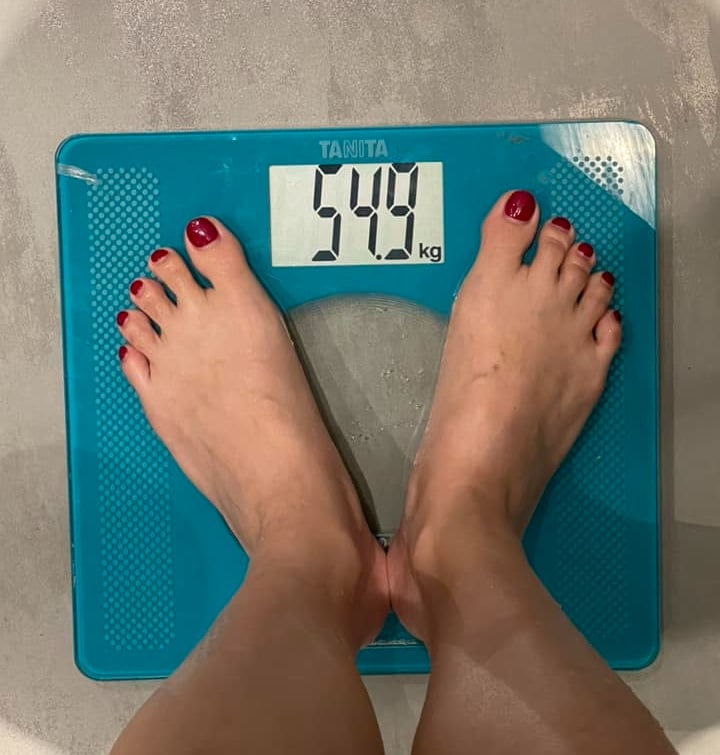
The Lunar New Year holiday is a time when it's easy to gain weight due to changes in daily routines - Photo: TTO
Dr. Phan Bich Nga, head of the pediatric nutrition counseling department (National Institute of Nutrition), said that weight gain during Tet (Lunar New Year) is usually due to two main reasons:
- A sudden surge in calorie intake: Tet is a time when parties and gatherings are much more frequent (both before, during, and after Tet), leading us to eat significantly more.
Excess energy will be converted into stored fat by the body, leading to rapid weight gain. In addition, in the North during winter, the weather is usually colder, so the body needs to increase metabolism to stay warm, making us feel hungry faster, which is also a risk factor for weight gain.
- Changes in exercise habits: In addition to increased calorie intake through diet, many people tend to be less active during the winter months and holidays.
Reduced physical activity is equivalent to burning fewer calories daily, leading to increased fat accumulation.
Tips for healthy eating and avoiding weight gain during the Lunar New Year holiday.
According to Dr. Nga, many people believe that "simply saying no" will help limit food intake. However, in reality, limiting food intake is much more difficult during holidays and Tet (Lunar New Year) because it's a time for family and friends to reunite after a busy year, making it hard to refuse invitations to eat and drink.
Therefore, to eat healthily and avoid weight gain during the Lunar New Year holiday, you can apply the following measures:
- Avoid skipping meals or eating large meals at once : Many people often skip lunch or eat very little if they have a party or gathering in the evening. However, in reality, leaving your stomach empty at lunch will cause your body to become hungry, leading you to tend to eat more at dinner than usual, resulting in rapid weight gain.
- Balance your meals : Breakfast should be low in fat and high in protein, lunch should be a light meal, and you should eat moderately at other meals throughout the day.
- Control your eating habits during parties and family dinners : On these occasions, being in the kitchen or near the dining table makes it easier to access food; eating while chatting with friends or relatives makes it difficult to control calorie intake.
- Pay attention to your body's hunger signals : Understanding whether your body is hungry is a crucial part of the fight to maintain a healthy weight. Eat slowly, chew thoroughly, and stop eating before your body feels full.
- Drink enough water : Sometimes thirst can be confused with hunger. So remember to drink enough water, preferably plain water, eat fruit, or drink unsweetened fruit juice.
- Prioritize healthy foods : This doesn't mean you can't eat sticky rice cakes or any other sweets during Tet, but prioritize healthy, nutritious foods for the majority of your meals.
Increase your intake of green vegetables, fruits, and fiber, as well as high-quality protein such as lean meats in your meals. Prioritize salads, boiled, and steamed dishes, and limit dishes with lots of sauces, fried, or battered foods.
- Pay attention to the calorie content of your drinks : A glass of beer can contain 175 calories, a glass of wine can contain 160ml, and 100ml of rice wine can contain 220 calories. Drink slowly to savor the drink, or consider substituting it with other beverages that have lower calorie content.
- Get enough sleep : This can be especially difficult during the Lunar New Year holiday, but sleeping less means your body is more likely to feel tired, sluggish, and lacking energy. This makes you more likely to seek out things that will recharge you and make you feel better, such as high-energy snacks or sugary drinks that are culprits for weight gain.
- Exercise and physical activity appropriate to age and health condition : When it's cold outside and the days are shorter, it's easy for us to fall into a state of hibernation and become less active.
You don't need to go to your usual workout class, but even small things like running a few extra laps if you're shopping at the mall during your holiday or taking a walk outdoors after a hearty lunch are helpful.
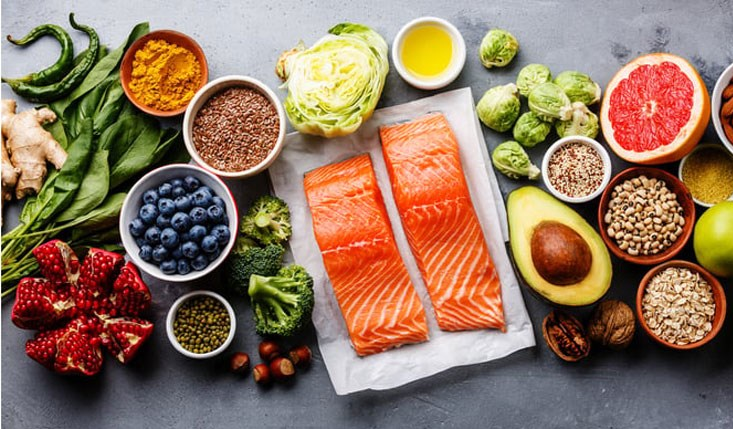
It is important to pay attention to a healthy lifestyle and a balanced, proper diet to maintain good health - Illustration image
Nutritional tips for the elderly and children during Tet (Lunar New Year)
For elderly people with chronic diseases: Eat slowly and chew your food thoroughly. Your menu should vary, avoiding eating the same dish repeatedly.
Divide your meals into smaller portions and avoid overeating, as this puts a strain on your stomach and can lead to indigestion.
Limit your intake of foods high in salt (processed foods, pickled vegetables, etc.) and foods high in fat. Instead, elderly people should eat more nutritious Tet dishes prepared by steaming, boiling, stewing, or chopping into small, soft pieces that are easy to chew and digest.
You should eat more fish than meat, and consume plant-based foods such as sesame seeds, tofu, and various types of beans. Avoid sugary sweets, foods high in starch and fat such as sticky rice cakes, pork sausage, and jellied meat; avoid foods that are difficult to digest and are too high in starch and oil.
Drink enough water to meet your body's needs. You can also drink milk, lotus seed tea, lotus root tea, etc., but avoid drinking too much coffee or very strong tea.
For children : Limit their intake of sweets, sugary drinks, and canned fruit juices. Ensure they have three main meals and one or two snacks, avoiding skipping meals or cramming food together. Increase their intake of fresh vegetables and fruits instead of processed foods.
If possible, try to maintain a normal sleep schedule during the Lunar New Year holidays to avoid disrupting your body's biological clock. Ensure good health for a successful new year in life, studies, and work.
Studies show that most adults don't gain excessive weight during the holidays. The average weight gain during this period is between 0.4 and 0.9 kg.
However, this can become a problem when this situation repeats itself over many years. Studies also show that people who are already overweight or obese gain more weight than those with a healthy weight, and the main reason for this weight gain leading to overweight and obesity is excessive weight gain during these long holidays.
Source: https://tuoitre.vn/tang-can-vu-vu-vi-tha-phanh-an-uong-chu-y-9-meo-nay-de-khac-phuc-20250107202011113.htm



![[Photo] Prime Minister Pham Minh Chinh presides over a meeting on private sector economic development.](/_next/image?url=https%3A%2F%2Fvphoto.vietnam.vn%2Fthumb%2F1200x675%2Fvietnam%2Fresource%2FIMAGE%2F2025%2F12%2F20%2F1766237501876_thiet-ke-chua-co-ten-40-png.webp&w=3840&q=75)












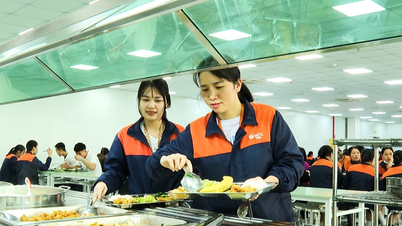

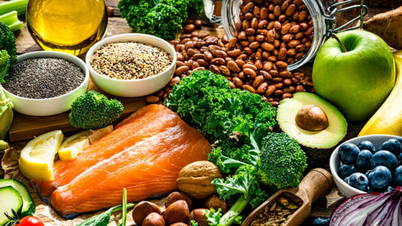





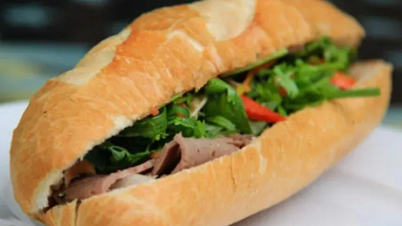




















































































Comment (0)